Cambridge Philosophy of Education Seminars 2022
Registration is now through Eventbrite
Tuesday 15th February 2022 5-6.30pm, via Zoom
Title: Reimagining African philosophy of education: On the cultivation of ubuntu
Over the past two decades African philosophy of education has been reconsidered in relation to the concept of ubuntu – literally human dignity and interdependence (Waghid, 2013). In this paper I argue that ubuntu is constituted by notions of autonomy, deliberative engagement, and responsibility. In this way cultivating and African philosophy of education cannot be delinked from actions that involve autonomy, deliberation, and responsibility. It is argued that an African philosophy guided by ubuntu has the potential to cultivate cosmopolitan actions intertwined with autonomy, deliberation and responsibility, that can undermine societal dystopias on the African continent and elsewhere.
Speaker: Professor Yusef Waghid, Stellenbosch University, South Africa
Yusef Waghid is distinguished professor of philosophy of (higher) education at Stellenbosch University in South Africa. He is the (co)author of African philosophy of education reconsidered: on being human (2013, Routledge); Rupturing African philosophy of teaching and learning: ubuntu justice and education (2018, Palgrave-MacMillan); The ubuntu university (2022, Palgrave-MacMillan); and Education, crises, and philosophy: ubuntu within higher education (Routledge, 2022).
Tuesday 22nd February 2022 2022 5-6.30pm, via Zoom
Title: Compassion as lived Mitleidenschaft
According to the Christian tradition, God reveals Himself especially in places where people are touched by the suffering of others and where compassion in the sense of “Mitleidenschaft” is lived. In German "Mit" means "with" and "leiden" = "to suffer". The word ending "schaft" comes after nouns in the German language when their totality is to be expressed. Numerous studies exist that examine the social component of suffering, while the religious dimension is left out. In this paper I explore how compassion may be instilled in students by sensitising them to the suffering of others. Working in the Christian tradition, I consider how compassion as lived Mitleidenschaft and religious commitment may be related and support one another.
Speaker: Maike Maria Domsel, University of Cologne, Germany
Maike Maria Domsel, is teacher of Catholic religious education and French at the Ernst-Moritz-Arndt-Gymnasium in Bonn, substitute professor for religious education at the University of Duisburg-Essen / lecturer at the University of Cologne. She studied Catholic theology and Roman studies in Bonn and received her doctorate in dogmatics from the Cologne University of Catholic Theology in 2019.
Tuesday 1st March 2022 5-6.30pm, via Zoom
Title: Children and COVID-19: Evidential and ethical biases
JCVI policy on vaccinating children, together with the slow roll out of vaccinations for children may have knock on effects on education. Widespread transmission among children, as well as uncertainty around the effects long-COVID, may be detrimental to children’s education, health and well-being. This presentation addresses the question: Shall we vaccinate children against COVID-19? Answering this question requires both the assessment of the relevant evidence as well as normative judgements about how to allocate scarce medical resources. I will argue that current debates display both evidential and ethical biases to the detriment of children. This evidential and ethical biases may be seen as symptoms of childism, or prejudice against children. I will conclude with a discussion of the wider societal and education implications of childism.
Speaker: Bengt Autzen, University College Cork, Ireland
Having studied mathematics as an undergraduate at Darmstadt University of Technology, Bengt completed a PhD in philosophy at the London School of Economics (LSE). Before joining UCC, Bengt did postdoctoral work in Bristol, Calgary, Munich and Salzburg. Bengt's research interests are in the philosophy of science, particularly the philosophy of biology, the philosophy of medicine and the philosophy of economics.
Tuesday 8th March 2022 5-6.30pm, via Zoom - TBC
Tuesday 15th March 2022 5-6.30pm, via Zoom
Title: Teaching stories: "Teaching you your religion"
The title of my talk, “Teaching Stories”, points in several directions. It announces an inquiry into the role of stories as a method of teaching. It points towards stories that tell of teaching, and, maybe, it even relates stories that happened to teaching.
Our actual inquiry into the role of stories for teaching is narrower. It focuses on a particular area, the “teaching of religion”. It takes its hints specifically from two of the so-called “Religions of the Book”: Christianity and Islam, and its inspiration from the famous “Hadith of Gabriel”. In this way, what might have appeared at first as a purely linguistic issue, i.e., the relation of word to meaning, shows itself more and more in its pedagogical aspects. It, thereby, reaches the two questions situated in the center of our talk: why should teaching through stories be regarded as an excellent way of teaching religion? And to which extent do the concepts of 'religion' prevalent at a certain time, direct our discussion about religious education? After all, is it not possible that Islamic education and Christian education are not only two branches on the same tree, two subjects in school, but two trees?
Speaker: Professor Steffen Stelzer, American University in Cairo, Egypt
Steffen Stelzer is Emeritus Professor of Philosophy at the American University in Cairo and has been Chair of its Dept. of Philosophy. He received his PhD from the Freie Universität Berlin, has been a research scholar at the École Normale Supérieure in Paris in the 1970s, at Harvard University’s Near Eastern Languages and Civilizations Department, and taught at Johns Hopkins University.
His areas of specialization include comparative analyses of Western and Islamic concepts of knowledge and of the transmission of knowledge, Rationality and Revelation, and the ethical dimensions of Sufism. Due to his background in both Western philosophical learning and the dimensions of Eastern sapiental knowledge, he has published a variety of articles (on Islamic ethics, on Ibn ‘Arabi’s concept of spiritual travel, on Reason and Revelation, on the implication of Prophetic Authority for concepts of knowledge, and on the Sufic criticism of philosophy) which reflect, both in style and content, the influence of his ‘two studies’.
Tuesday 22nd March 2022 5-6.30pm, via Zoom - TBC
PESGB EVENTS ARE OPEN TO ALL STUDENTS AND STAFF
- Recordings of some previous events are available the faculty Youtube channel
TEAM:
Co-convener and Philosophy of Education Society of Great Britain Cambridge Branch Secretary: Dr. Daniel Moulin-Stożek (dpm50@cam.ac.uk)
Dr. Daniel Moulin-Stożek, Lecturer in Education at the University of Cambridge, works across the fields of moral education, values education and religious studies. Moulin-Stożek is currently researching philosophical issues surrounding values and attitudes education and pedagogies of religious education. He is Assistant Editor of the Journal of Beliefs and Values and received his doctorate from the University of Oxford.
Co-Convener: Dr. Farah Ahmed (fa287@cam.ac.uk)
Farah Ahmed is Leverhulme Early Career Research Fellow at the Faculty of Education, University of Cambridge. She co-convenes the ‘Cultural, religious and philosophical traditions in educational dialogue’ strand of the Cambridge Educational Dialogue Research group. Her current project is: Rethinking Islamic education for British Muslim children: a philosophical investigation of dialogue in Islamic educational theory and an empirical study trialling dialogic pedagogy in UK madrasahs (supplementary schools). Farah has published widely on holistic Islamic educational approaches and is founder and Director of Education at Islamic Shakhsiyah Foundation; where she works on developing research informed curricular resources and teacher professional development. She is also Founding Fellow and Council Member of the Chartered College of Teaching.
Student Representative: Adam Woodage
Adam is a mature undergraduate student at the Faculty of Education. Before arriving at Cambridge, he worked on the digital professional learning provisions for teachers across 21 state schools in East Anglia, co-founded an organisation which teaches English to 5000 children in India and led a journalism project on minority rights, civil activism and occupied territories in Georgia (South Caucasus). He is interested in the field of education broadly, and particularly the relationship between politics and education.
Cambridge Philosophy of Education Seminars 2020-21
1. ‘Remembering’ ancient Chinese values: ‘Tao’ and the expansion of Steiner (Waldorf) education in China
Yifan Sun, Rudolf Steiner University College
Tuesday 20th October 2020 5-6.30pm, via Zoom
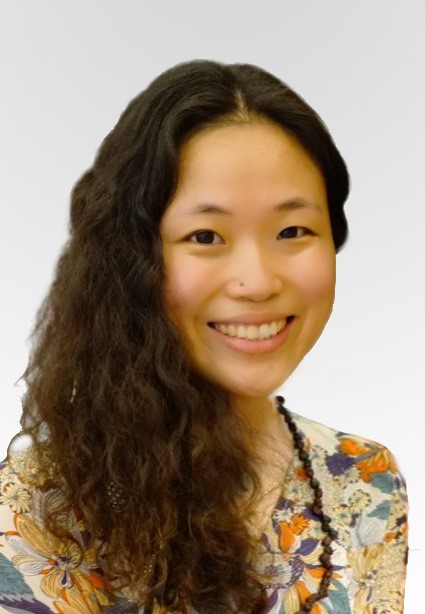
TALK DESCRIPTION:
In the past decade, China has seen a major expansion of alternative education, an aspect of which is the rapid growth of Steiner (Waldorf) schools and kindergartens. This talk aims to look at the extent to which the fundamental axioms of Steiner education as perceived by Steiner parents and teachers in China, can be understood to be aligned with those found in the notion of 'Tao' (道). The talk draws on the findings of Yifan’s ethnographic research in which she spent ten months with two Steiner school communities in China, as part of her doctorate study. She has taken a transdisciplinary, dialectical approach, with a conceptual framework inspired by the notion of ‘Tao’ in which events are never thought of as occurring in isolation but embedded in a meaningful whole. Special attention will be paid to the transcendent nature of Steiner education and Chinese philosophies, and as such this paper will seek to provide philosophical insight based on empirical findings. This talk presents the idea that the presence of Steiner education in China can be understood as a ‘remembering’ of ancient Chinese values which have been institutionally forgotten in the course of the modernisation process.
SPEAKER BIO:Yifan Sun is an associate professor at Rudolf Steiner University College, Norway. She has graduated with a PhD in Education from the University of Cambridge, researching on Waldorf (Steiner) Education as part of the holistic education movement in China. Her research interests include Steiner (Waldorf) education, holistic education and traditional Chinese philosophies. She is currently the co-chair of the Contemplative Inquiry and Holistic Education (CIHE) SIG, Comparative and International Education Society (CIES). Originally from China, she has lived in different parts of the world and travelled to more than 70 countries. She is also a meditation and yoga practitioner. She led expedition trips to Antarctica, facilitates self-development, mindfulness and nature-connection workshops, as well as runs coaching programs among youth in China.
2. Confucian philosophy in current China’s K-12 education: Understanding from insiders
Hanwei Tang, East China Normal University, China and Lingqi Meng, Qufu Normal University, China.
Friday 6 November 2020, 2-3.30 pm, via Zoom
TALK DESCRIPTION: Over the last four decades, China has experienced a huge social and economic change and become the second largest economy in the world. Now, as the young Chinese generation have been attracted and nurtured by hybrid cultures (e.g., popular culture, imported western culture, digital culture), do they still keep Confucian cultural identity? How do Chinese administrators and educators help K-12 students acquire Confucian philosophy? This presentation offers an overview of these issues. The first part introduces the important documents recommended by Chinese Ministry of Education to encourage educators in K-12 education to develop local curriculum for students to acquire Confucian cultural beliefs. The second part zooms out several secondary schools to see how Confucian values are adopted at the classroom level. In particular, how the doctrine of the mean, an important embodiment of Confucianism, is adopted and applied to make a harmonized classroom climate is introduced. As students acquire the doctrine of the mean, they can walk on the middle way between competition and collaboration in small group learning, and this has been evidenced as a unique feature of Chinese students’ learning in Programme for International Student Assessment 2018 data. The third and last part analyses and reflects these cultural practices by going back to academic literature, with respect to developing students’ identity and cultural values. One of the interesting reflections is that it is hard to bridge the gap between theory and practice, a longstanding issue in the educational discourse.
SPEAKERS BIO: Hanwei Tang, Ph. D, professor of faculty of education, East China Normal University, China. His research interests include moral education, philosophy of education, and school of change and improvement. Lingqi Meng, Ph. D, professor of college of education, Qufu Normal University, China. His research interests include Confucian and Buddhist culture, comparative study, and big data in education.
3. Akhlāq – moral or aesthetic?
Abdullah Trevathan, Al Akhawayn University
Tuesday November 24th 2020 5-6.30pm, via Zoom
A recording of this talk is now available here
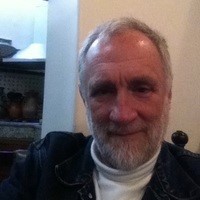
TALK DESCRIPTION:
Against the backdrop of a global youth culture usually depicted as aggressively disobliging, many Muslim educators see apparent disparities between behavioural expectations and the actual everyday reality of many students’ behaviour. How real or imagined is this? Despite the emphasis placed on developing moral behaviour within Muslim education, current approaches seem generally lacking and fall woefully short. Can the favourable dispositions and behaviour known as akhlāq ever be actually taught? Is it ‘some-thing’ to be communicated within formal education settings and if so how could it be best carried out?
Alternatives to current approaches will be explored through examining other ways of authentically opening sensibilities of ‘akhlāq in learners and a central argument made for the shedding of moral and ethics-based approaches in teaching akhlāq. A replacement is suggested suggesting its replacement be rather built around the concept of obligation. The elements of hudur (aware presence) will also be discussed as providing the space within which akhlāq may occur. The relation of adab and akhlāq will also be looked into.
With a theoretical framework established and applied, the more practical aspects of conveying akhlāq within a school environment will be discussed. Can authentic learning experiences be created around an aesthetics of akhlāq as opposed to its portrayal within the moral and ethical sphere and expressed through planned and objectives-based lessons?
SPEAKER BIO:
Abdullah Trevathan was born in New York and raised in Puerto Rico, Greece, Germany and the UK and has lived mainly in the UK, Spain, the Netherlands and Morocco. His main interest lies in the tensions between rationality vs non-rational (not irrationality) as manifested in the areas of education and religion.
Since the early eighties he has taught at all levels of education in the UK. From 1998 he was Headteacher of Islamia Primary School for eight years in inner London and thereafter lectured in Education at Roehampton University in London for six years. Since 2011 he has lectured in Comparative Religion and Philosophy of Religion at Masters level at the Al Akhawan University in Morocco. He has also been employed as an educational consultant in that country.
He has a Masters in Philosophy of Education from the Institute of Education, London and a PhD in philosophical theology from Birmingham University, UK. He is currently engaged in the DProf programme in existential philosophy at Middlesex University. He has published work in various academic books and articles mainly in educational philosophy in the UK. Austrailia and Spain.
4. Educational Justice: Liberal ideals, persistent inequality and the constructive uses of critique
Michael Merry, Professor of Philosophy, Department of Child Development and Education, University of Amsterdam
Tuesday December 1st 2020, 5-6.30pm, via Zoom - Due to technical difficulties on the day, this talk will be rescheduled to a later date.
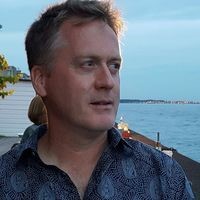
Michael Merry, Professor of Philosophy, Department of Child Development and Education, University of Amsterdam
TALK DESCRIPTION: Michael Merry’s 2020 book, Educational Justice: Liberal ideals, persistent inequality and the constructive uses of critique, aims to present new, empirically-informed and philosophically robust insights to replace stale liberal thinking about educational justice; offer a broad, comparative approach not limited to the American context; and provide a strong anti-paternalist rationale for educational justice. Merry examines the philosophical, motivational, and practical challenges of education theory, policy, and practice in the twenty-first century. There is a loud and persistent drum beat of support for schools, for citizenship, for diversity and inclusion, and increasingly for labor market readiness with very little critical attention to the assumptions underlying these agendas, let alone to their many internal contradictions. Merry does not neglect the historical, comparative international context so essential to better understanding where we are, as well as what is attainable in terms of educational justice. He argues that we must constructively critique some of our most cherished beliefs about education if we are to save the hope of real justice from the rhetoric of imagined justice.
SPEAKER BIO: Michael S. Merry is professor of philosophy in the department of Child Development and Education. He also is affiliated with the Department of Philosophy in the Faculty of Humanities and the Departments of both Geography and Sociology in the Faculty of Social and Behavioral Sciences. He received a broad education in the humanities in Chicago, Leuven and New York before earning his doctorate in philosophy and educational policy studies at the University of Wisconsin-Madison. Though he writes on a wide variety of topics, he specializes in the following: the various features of educational inequality, both institutional and non-institutional; state paternalism and the ethics of intervention; the politics and epistemology of academic research; the ethics of school choice and school segregation, citizenship and civic education, religion and religious schools, and alternative education in its manifold forms. The books he has authored, aside from Educational Justice: Liberal ideals, persistent inequality and the constructive uses of critique, include Equality, Citizenship and Segregation: A defense of separation (Palgrave Macmillan) and Culture, Identity and Islamic Schooling: A philosophical approach (Palgrave Macmillan).
5. ‘Islamic and British models of education: conflict or convergence?’
Tim Winter, University Lecturer in Islamic Studies at the University of Cambridge
Tuesday Jan 26th 2021, 5-6.30pm, via Zoom
A recording of this talk is now available here
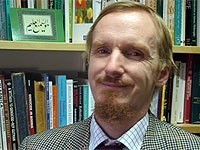
TALK DESCRIPTION: The young and rapidly-growing Muslim demography of the UK has established over 150 full-time educational institutions in which the engagement of Muslim theology and ethics with ‘British values’ is variously performed. In this talk we consider the theories of some contemporary Muslim educationalists as they grapple with the paradoxes of maintaining a faithful Muslim episteme in the secularising regulatory and philosophical environment of modern Britain.
SPEAKER BIO: Dr Tim Winter (Sheikh Abdul-Hakim Murad) is University Lecturer in Islamic Studies at the University of Cambridge, and is dean of the Cambridge Muslim College, which trains imams for British mosques. His research has been published in a variety of collections and journals. His most recent book, writing as Abdal Hakim Murad, is Travelling Home: essays on Islam in Europe (2020).
6. Round table on dignity and education
Tuesday 16 February 2021, 5-6.30pm via Zoom
Klas Roth (Stockholm), Lia Mollvik (Stockholm), Rama Alshoufani (Stockholm), Rebecca Adami (Stockholm), Katy Dineen (University College Cork), Fariba Majlesi (Stockholm).
A recording of this talk is now available here
In this roundtable discussion, contributors discuss the importance of dignity to education. Klas Roth introduces the concept and argues that it is not uncommon that the value of human beings has to do with their price in, inter alia, their social, cultural, political and economic settings throughout the world. He argues that such a focus does not necessarily draw attention to the inner dignity of human beings, but that human beings ought to do so in education and society at large. Lia Mollvik discusses views of inner and outer dignity, and argues that there needs to be a balance in between them, and that the balance ought to be acknowledged in education. Rama Alshoufani discusses the classification of human beings in terms of various diagnoses related to the asserted dysfunction of the brain, and she argues that such classification does paradoxically not necessarily respect people with such diagnoses as ends in themselves. On the contrary, she argues that their inner dignity is not respected, but that it should be. Other such failures are due to the lack of inner dignity when it comes to Children’s rights as discussed by Rebecca Adami, and to the lack of recognition of human beings’ vulnerability as discussed by Katy Dineen. Fariba Majlesi criticizes a too strong emphasis on substantive notions of humanist education, which seem to hinder new ways of thinking; she argues that it is necessary to acknowledge the latter in and through education in order to preserve the dignity of human beings.
7. The interconnection of things in an era of colonisation: Maori and education
Carl Mika, Associate Professor, Co-Director, Centre for Global Studies, University of Waikato, New Zealand
Tuesday 23rd February 17:00 - 18.30pm GMT via Zoom
A recording of this talk is now available here
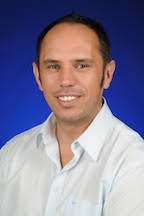
TALK DESCRIPTION: In much of the relevant literature and in general discussion, Maori (the indigenous people of New Zealand) place emphasis on the interconnection of things in the world. This is perhaps the most important founding principle of Maori thought – to such an extent that its implications for everyday systems and functions will continue to be fleshed out for some time.
Not only is this principle of utmost importance for those wishing to preserve the integrity of Maori thought in its own right; it also has consequences in an era of colonisation, where Maori are at the blunt end of an assumption that the clarity of singular things in the world is the appropriate way of interacting with them. In universities, for instance, students are encouraged to write dissertations (as one example) with a type of certainty, arising from that clarity of a thing and of the self, that might be perplexing from the Maori standpoint of interconnection. Alongside addressing a Maori proposition of interconnection more broadly, this talk will consider how a Maori version of uncertainty – sustained through interconnection – might find its place in some facets of education.
SPEAKER BIO:
Carl Mika is an associate professor in the Division of Education at the University of Waikato, New Zealand. He is also adjunct professor at RMIT, Melbourne. He has published on Maori and other indigenous philosophy, in particular that which deals with holism. He has a PhD in German Studies from the University of Waikato, and works with certain philosophies from the tradition of German Romanticism as well as phenomenology. He is also Co-Director of the Centre for Global Studies, University of Waikato.
8. Al-Ghazali's multiplex epistemology and implications for contemporary education
Professor Recep Şentürk, President of Ibn Haldun University in Istanbul, Turkey
Tuesday 2nd March 17:00pm - 18.30pm GMT via Zoom
A recording of this talk is now available here
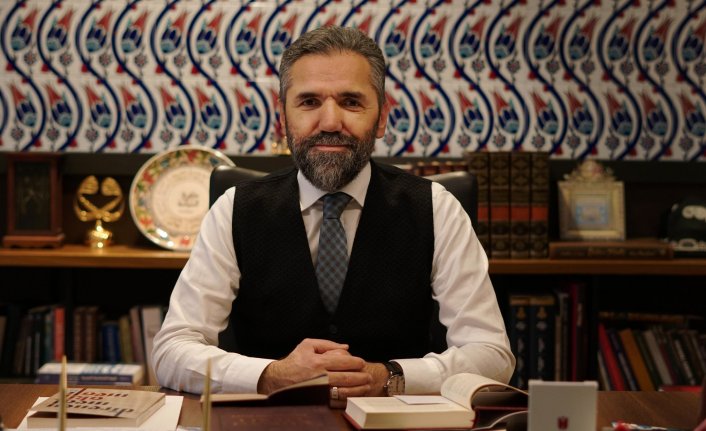
TALK DESCRIPTION: Ghazali’s human ontology and epistemology are multiplex. So is his pedagogy. More concretely, Ghazali accepts that human beings are constituted by three levels: body, mind and soul. In line with this, his epistemology is constituted by two levels: objective and subjective epistemology. Objective epistemology consists of reason, sense perception and divine revelation while subjective epistemology includes spiritually gained knowledge via heart, dreams, intuitions and inspirations. In practice, this approach requires combining rational education (ta’lim) with spiritual and moral education (tazkiya). The purpose of Islamic education is to elevate students from unawareness (taqlīd) to awareness (tahqīq) about their own reality along with the meaning and purpose of their existence. This is how they achieve the goal of becoming ideal human beings (al-insân al-kâmil). This view on human ontology, epistemology and pedagogy have the following implications on contemporary education: (1) Replacing the present concept of human in the text books with a multiplex one. (2) Replacing the positivist epistemology in the text books with a multiplex one. (3) Redefining the ultimate goal of education as raising ideal human beings prior to training employees for jobs. (4) Using academic education to teach how to use objective epistemology. (5) Using spiritual and moral education to develop competency to use subjective epistemology. The multiplex approached Ghazali—along with other Muslim thinkers--adopted in education is very much needed today to overcome the problems emanating from the materialist uniplex pedagogical approaches.
SHORT BIO: Dr. Recep Şentürk is the President of Ibn Haldun University (IHU) in Istanbul, Turkey. Professor Şentürk holds a Ph.D. from Columbia University, Department of Sociology, and specializes in civilization studies, sociology and Islamic studies with a focus on social networks, human rights, and modernization in the Muslim world. Among his books are in English, Narrative Social Structure: Hadith Transmission Network 610-1505, and in Turkish; Open Civilization: Towards a Multi- Civilizational Society and World; Ibn Khaldun: Contemporary Readings; Malcolm X: Struggle for Human Rights, Social Memory: Hadith Transmission Network 610-1505. Dr. Şentürk’s work has been translated to Arabic, Japanese and Spanish.
9. Constructing a Pedagogy of Privacy in the Digital Age - This talk was cancelled due to unforeseen circumstances.
Dr. Shawn Bullock, Reader in the History of Science, Technology and Education, Faculty of Education and Emmanuel College, University of Cambridge
Tuesday March 9 at 5pm-6.30pm GMT via Zoom
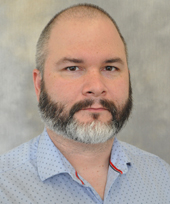
TALK DESCRIPTION: The concept of privacy requires us to consider the benefits and problems of being known by the society in which one lives. Historian Sarah Igo argues, in part, that privacy is at once our most contested “right” and at the core of what it means to be a citizen. Social media and surveillance technologies have caused many of us to question the degree to which we want to, or ought to, be known and to whom. I will begin this talk by arguing that current digital technologies have augmented debates about privacy that began, in force, in the late-19th century with a view to demonstrating how we might use certain arguments to analyse our own claims about our personal privacy in 2021. I conclude by offering ways in which we might engage our students in thinking about privacy in digital age—and indeed the age of lockdown—by suggesting features of what I refer to as a “pedagogy of privacy.”
SPEAKER BIO: Shawn Bullock is a Reader in the History of Science, Technology and Education. His work uses the lenses offered by the history and philosophy of science and technology (HPST) to both examine ideas in education and to contribute to the history of science, technology and education. Currently, he is particularly interested in the history of higher education in physics in the 19th century, the history of technology, the history of engineering education, the intersections between architectural history and art education, and the history of language education. He also conducts research on teacher education and professional development, with a particular focus on self-study methodology and the role of reflective practice in developing professional knowledge about, and for, teaching and teaching future teachers. Within this domain, he is currently particularly interested in the intersection between plurilingual approaches to education and the required re-negotiations of professional and personal identities.
10. Alternative education in light of the Coronavirus crisis
Helen Lees, Founding Editor-in-Chief of Other Education and co-editor of the book series Palgrave Studies in Alternative Education
Tuesday April 27th 2021, 5-6.30pm, via Zoom
Due to technical difficulties, this talk was not recorded.
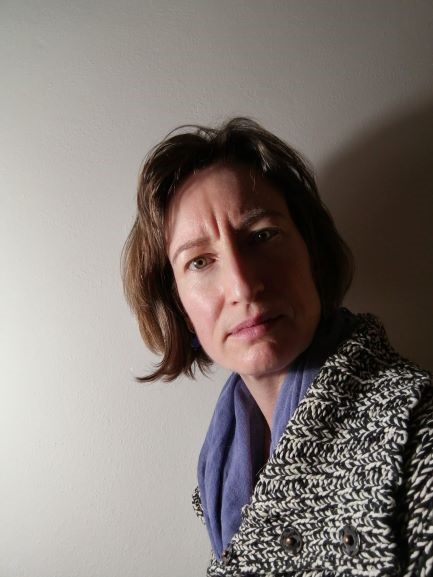
TALK DESCRIPTION: Before Coronavirus crisis alternative education was a niche, cute, slightly fashionable, historically troubled but neglected and overlooked domain of education. It was brilliant and those who knew it understood that but those outside the fold of knowledge of this brilliance saw only dysfunction in relation to their norm. Suddenly a world pandemic meant many globally were dabbling by necessity in education without schools, which by definition might be seen as alternative education. What happened the moment schools closed and what happened subsequently? This talk discusses the new norm of educating alternatively in one way or another as no norm at all on account of its radicality as other. In other words, alternative education requires a fundamental change in lifestyle and educational approach, not just necessary action or settlement back into comfortable givens. It cannot be assimilated as any new norm for its promise and premise is in and of a different world from any previously ever known to be the case. A world where democratic relations are the norm? Where voice is the primary premise of transactions? This would represent a shift towards well-being, personal self-care and care of the other so profound and astonishing for its eschewing of drama and binaries that everything would change, including - importantly- responses to environmental stewardship. Too challenging to change that much!? However alternative education, with its characteristics of voice and freedom is surprisingly joyous and rich in feel-good factors - affects that may be hard for many bringing up the next generation to leave behind as they seek to re-embrace any status quo before the crisis. So, is alternative education on account of a pandemic push, going to change the world?
SPEAKER BIO: Dr Helen E. Lees worked for 12 years in university education, specialising in alternative education. She is now a writer, artist and independent scholar, based near Florence. Her books include "Silence in Schools" (2012), "Education Without Schools: Discovering alternatives" (2014, Policy Press), co-editor of the "Palgrave International Handbook of Alternative Education" (2016) and other publications. She is founding Editor-in-chief of the online academic and community journal - http://www.othereducation.org - the journal of educational alternatives and co-editor of the book series Palgrave Studies in Alternative Education.
11. Existentialism and Exemplars
Kate Kirkpatrick, Fellow in Philosophy and Christian Ethics, University of Oxford
4th of May 2021, 5-6.30pm via Zoom
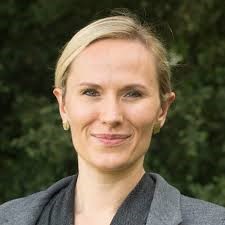
TALK DESCRIPTION: This talk argues that Simone de Beauvoir’s literature should be read in the tradition ofNietzschean moral perfectionism. Kate claims that Beauvoir's literary works were written with explicitlyexemplary aims, and that this perfectionist readinghas been overshadowed in Anglophone philosophicaldiscussions of her work where questions of genderhave often eclipsed those of ethics, aesthetics, andgenre. Kate's aim is twofold: to rehistoricise Beauvoir’sproject as one of moral perfectionism and to bring it into dialogue with Anglo-American debates about therole of literature in ethical formation.
SPEAKER BIO: Kate Kirkpatrick read her BA in Philosophy and Theology at Regent’s Park College and her DPhil at St Cross College, Oxford. Prior to taking up her current position she held lectureships at St Peter’s College, Oxford, the University of Hertfordshire, and King’s College London. Her interests include post-Kantian philosophy (Nietzsche, Beauvoir, Sartre), feminist philosophy ethical formation (in Moral Philosophy and Ethics) and Philosophy of Religion. The books she has authored include Becoming Beauvoir: A Life (London: Bloomsbury, 2019); The Mystical Sources of Existentialist Thought (Abingdon: Routledge, 2018); Sartre and Theology (London: Bloomsbury/T&T Clark, 2017) and Sin on Sartre: Between Being and Nothingness (Oxford: Oxford University Press, 2017).
12. 11th May 2021, 5-6.30pm via Zoom
A Tall Order: Can schools deliver both diversity and inclusion?
Michael Merry, Professor of Philosophy, Department of Child Development and Education, University of Amsterdam
Partly as a response to imposed segregation and exclusion, for decades now philosophers, policy makers and ordinary citizens have demanded that schools demonstrate their ability to accommodate and address more and more needs in the classroom. 'Diversity' and 'inclusion' are two buzzwords that often are used to convey these 21st century imperatives. What conditions must hold for them to work? How well do diversity and inclusion hold together? And does it make sense to expect schools to succeed in both at the same time without producing new regimes of imposed segregation and exclusion?
SPEAKER BIO: Michael S. Merry is professor of philosophy in the department of Child Development and Education. He also is affiliated with the Department of Philosophy in the Faculty of Humanities and the Departments of both Geography and Sociology in the Faculty of Social and Behavioral Sciences. He received a broad education in the humanities in Chicago, Leuven and New York before earning his doctorate in philosophy and educational policy studies at the University of Wisconsin-Madison. Though he writes on a wide variety of topics, he specializes in the following: the various features of educational inequality, both institutional and non-institutional; state paternalism and the ethics of intervention; the politics and epistemology of academic research; the ethics of school choice and school segregation, citizenship and civic education, religion and religious schools, and alternative education in its manifold forms. The books he has authored, aside from Educational Justice: Liberal ideals, persistent inequality and the constructive uses of critique, include Equality, Citizenship and Segregation: A defense of separation (Palgrave Macmillan) and Culture, Identity and Islamic Schooling: A philosophical approach (Palgrave Macmillan).
13. 18th May 2021, 5-6.30pm via Zoom
White ontological expansiveness:whiteness as the core and margin of racialised difference in education policy
Sharon Walker
SPEAKER BIO: I am a sociologist of education with particular interest in how education systems are shaped by racial thinking, processes of racialisation and racism. My PhD presented an analysis of the racialised discourse of the UK’s widening participation policy agenda. I have also published in the field of comparative and international education on the erasure of racism as a sector concern. As a former primary school teacher, I work with school leaders to support their understanding and implementation of anti-racist education approaches.
14. 25th May 2021, 5-6.30pm via Zoom
Identity and Personal Formation in Technoscientific Societies: A View From Theology and Religious Studies
Michael Burdett, Assistant Professor, Dept. of Theology and Religious Studies, University of Nottingham
SPEAKER BIO: I joined the University of Nottingham in 2018, having held a research fellowship at the University of Oxford for a number of years. My interests have always been broad. I have undergraduate degrees in physics, philosophy, engineering and theology. I began my academic life at several universities in the Los Angeles area as a native Californian. But I gave up working in the aerospace and robotics industries in California to pursue further graduate work in theology and philosophy at the University of Oxford under the Lady Margaret Professor of Divinity, George Pattison. I then moved to the University of St Andrews for three years as a researcher where I was formed considerably by the late John Webster and his students. I moved back to Oxford for two years holding a permanent research fellowship before coming to Nottingham in my present role as Assistant Professor of Christian Theology.
PESGB EVENTS ARE OPEN TO ALL STUDENTS AND STAFF
TEAM
Co-convener and Philosophy of Education Society of Great Britain Cambridge Branch Secretary: Dr. Daniel Moulin-Stożek (dpm50@cam.ac.uk)
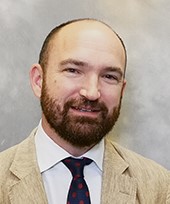
Dr. Daniel Moulin-Stożek, Lecturer in Education at the University of Cambridge, works across the fields of moral education, values education and religious studies. Moulin-Stożek is currently researching philosophical issues surrounding values and attitudes education and pedagogies of religious education. He is Assistant Editor of the Journal of Beliefs and Values and received his doctorate from the University of Oxford.
Co-Convener: Dr. Farah Ahmed (fa287@cam.ac.uk)
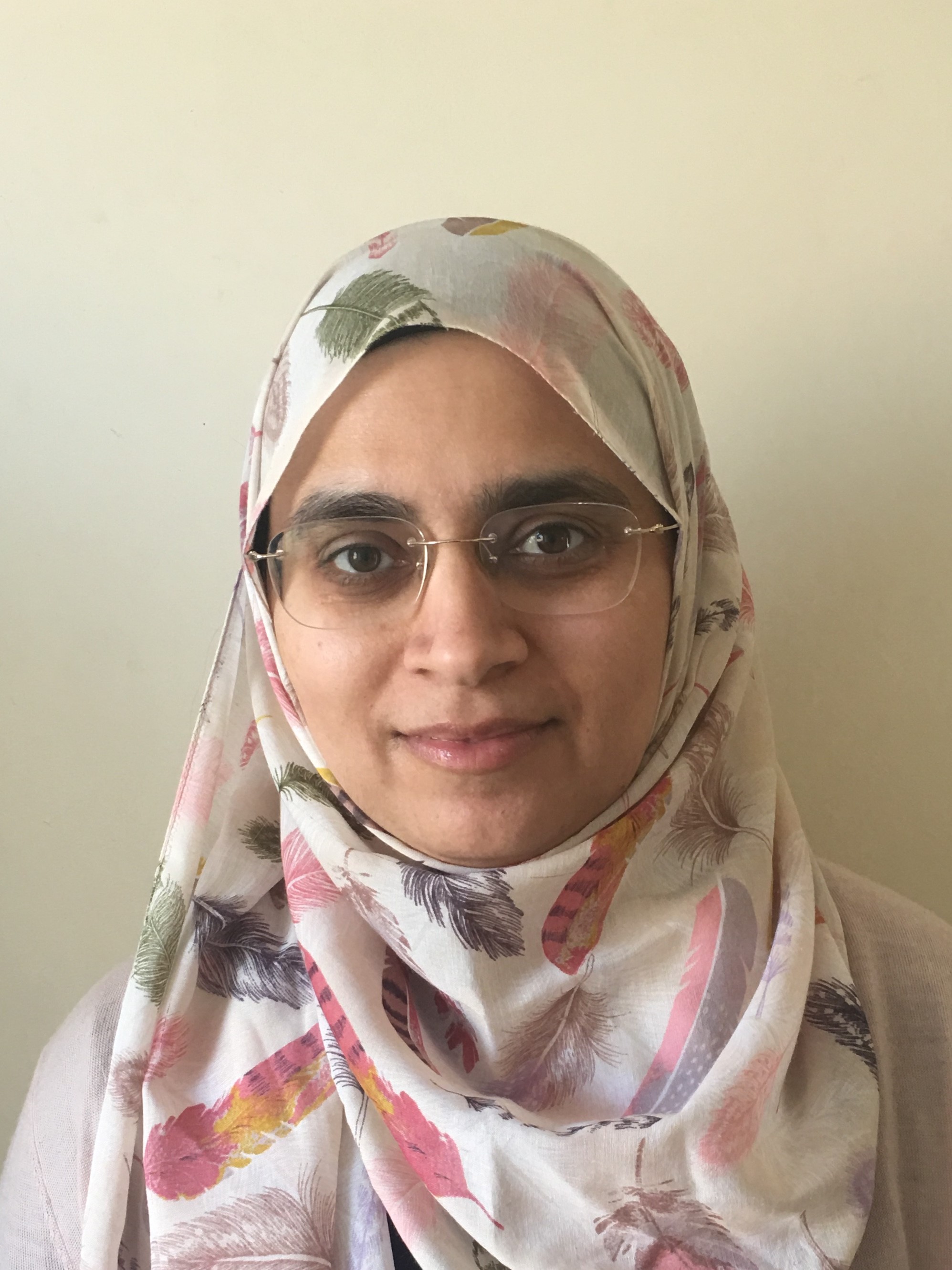
Farah Ahmed is Leverhulme Early Career Research Fellow at the Faculty of Education, University of Cambridge. She co-convenes the ‘Cultural, religious and philosophical traditions in educational dialogue’ strand of the Cambridge Educational Dialogue Research group. Her current project is: Rethinking Islamic education for British Muslim children: a philosophical investigation of dialogue in Islamic educational theory and an empirical study trialling dialogic pedagogy in UK madrasahs (supplementary schools). Farah has published widely on holistic Islamic educational approaches and is founder and Director of Education at Islamic Shakhsiyah Foundation; where she works on developing research informed curricular resources and teacher professional development. She is also Founding Fellow and Council Member of the Chartered College of Teaching.
Postgraduate Student Representative
Nomisha Kurian (nck28@cam.ac.uk)
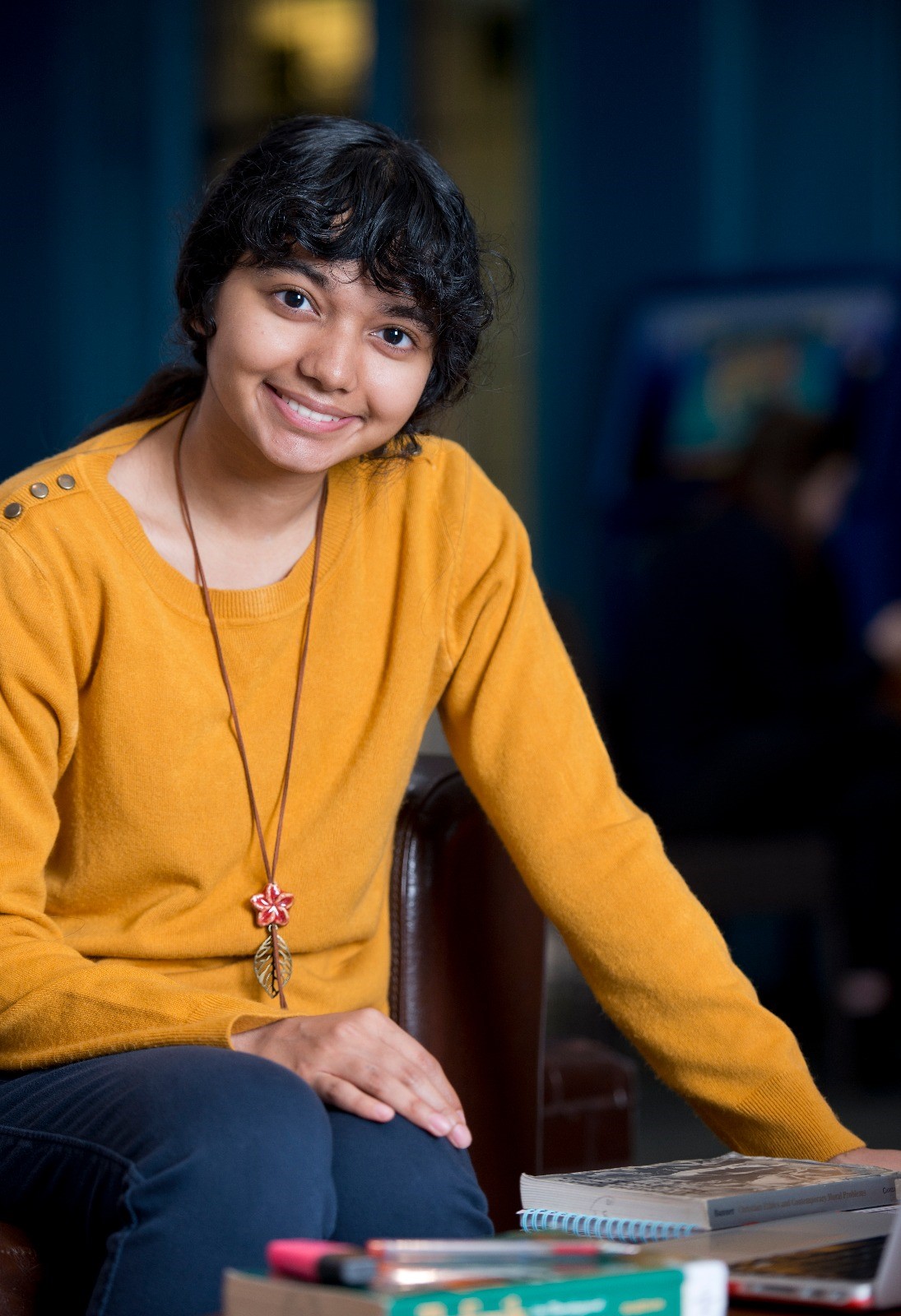
Nomisha is a PhD candidate at the Research for Equitable Access and Learning (REAL) Centre at the University of Cambridge and a former Charles and Julia Henry Fellow at Yale University. Her core interest in building safer, more inclusive schools, particularly for socio-economically disadvantaged or at-risk young people, has led her to explore issues of peacebuilding, wellbeing, empathy, violence prevention, pastoral care and inequality in education. Her work has most recently been published in the Palgrave Handbook of Citizenship and Education, the Journal of Peace Education and the International Journal of Human Rights.
